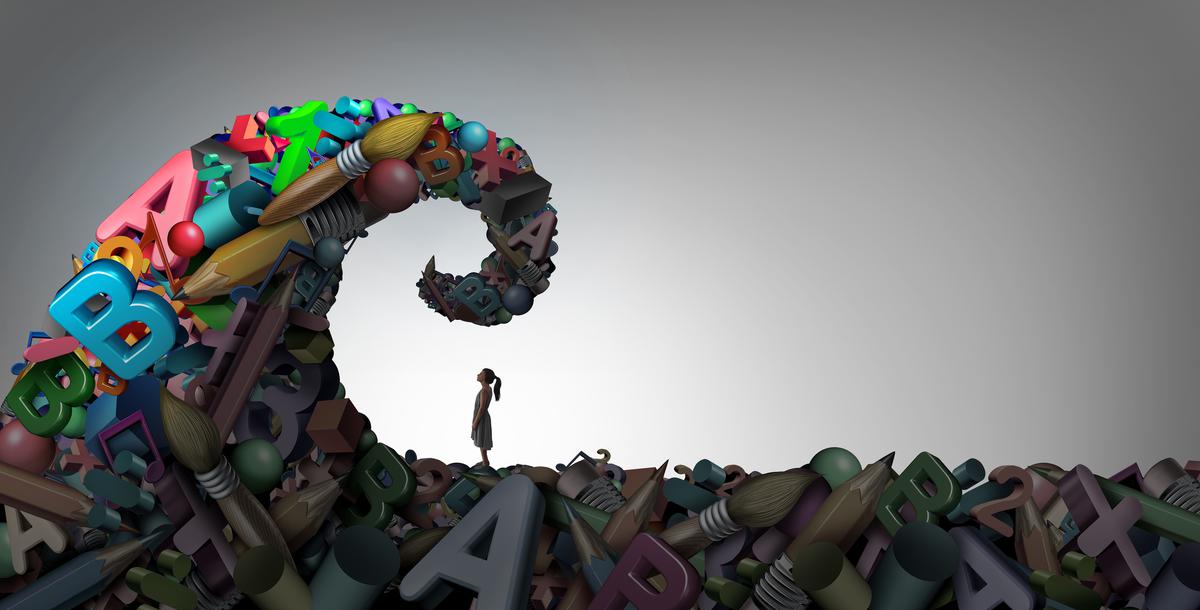When Jordan Hereford, a student from Bengaluru, was diagnosed with a learning disability, he was home-schooled until he reached class 10. The family struggled to find a high school for their son but finally found a CISCE-affiliated school in Bengaluru that would support him at this critical juncture. This proved to be a turning point. “He topped his class in economics and accounting in class 12 and won five awards,” says his sister Tamara. “He studied journalism, international relations and public policy at St. Joseph’s College, Bengaluru, which also encouraged him greatly.” St. Joseph’s College, Bengaluru, which also encouraged him greatly.
Awareness about learning disabilities is on the rise at the primary and secondary school levels in India, but what happens to students with learning disabilities at the high school and college levels?
I gave in.
At the high school level, many of the students with learning disabilities opt for National Institute of Open Schooling (NIOS), a national-level education board in India, which offers flexibility in taking exams and diverse subject choices. Mangala Jayachandran, Director of Special Education at Lady Andal Venkatasuba Rao School (Retd.) and president of Lady Andal Children’s House (NIOS), is a pioneer in the field of special education in Chennai. She says that when schools step up their support at the higher secondary level, amazing things happen. “Kids sent from other schools have blossomed under our care and become entrepreneurs, artists, CEOs and successful sportspeople,” she says. “Most of our students pursue higher education in reputed educational institutions in Chennai or abroad and opt for vocational training.”
She believes that the Tamil Nadu government’s expansion of credentialing procedures and incentives at the undergraduate level is a positive development for dyslexic students in higher education. All education boards in India offer exam incentives and access arrangements for students with special needs.
Arnav Jain, a student with a learning disability, is currently enrolled in his final year of Bachelor of Business Management and Marketing (BBMM), majoring in Marketing, at Narsee Monjee Institute of Management Studies (NMIMS), Mumbai. The university provides him with access to laptops, scribes and reading services. He also hosts a podcast called Fireside Chat Show with Arnav Jain, in which he talks about his experience with dyslexia. He has noticed that many universities in India are unwilling to admit students with learning disabilities or those who have completed their Higher Secondary Examinations from NIOS. “Universities feel that students with learning disabilities may not be able to withstand the rigors of an undergraduate course.” Arnab performed well in NPAT, the NMIMS entrance exam.
Sarika Umamahesh, learning centre coordinator at Bangalore International School, Bengaluru, believes counselling, health sessions and guidance on post-school transition planning are key. The learning centre at BIS was established in 2003 and caters to students with mild to severe special education needs. “The centre takes a collaborative approach to learning disabilities and also uses assistive technology devices to help students realise their potential,” she says. “The school also conducts awareness sessions for the student community and works closely with parents. Many of the students who complete NIOS higher secondary schooling go on to study at universities in India, the UK, the US, Canada and Singapore. They pursue careers ranging from Montessori education, graphic design, fashion design, hospitality and hotel management.
Vocational Training Programs
Vocational degree programs are a great way for students with learning disabilities to get training in a real-life work environment. At the school level, APL Global in Chennai offers the Kamalam program, which equips students with career-readiness skills and practical academics. The school follows the Cambridge curriculum and is also a NIOS-accredited centre. Kripa Ganesan, head of special education, says, “In grades 10 and 12, students work closely with their subject teachers and receive support from special educators on specific strategies to improve their creative writing skills, executive function, note-taking and study skills.”
Dyslexics are not the only ones who can benefit from vocational training. Germany’s vocational education and training system is world-renowned and can be an excellent way to address the global skills gap. The All India Council for Technical Education (AICTE) has announced that in 2022, vocational degree courses will be treated at par with an engineering diploma or a Bachelor of Science degree for transverse admission to B.Tech. D. Chandrasekhar, president of the Madras Dyslexia Association, points out that students with learning disabilities are not automatically accepted into colleges. Admissions are sporadic, mainly due to the efforts of parents. “Students with learning disabilities mainly study visual communication and home science, but colleges should make other majors and disciplines available to them,” he says.
Till then, students with learning disabilities will have to fight to find suitable opportunities and get better status in higher educational institutions in India.
The writer is a Mumbai-based freelance journalist and founder of Bangalore Schools, a parents’ community on Facebook.
This is a premium article available exclusively to our subscribers. To read more than 250 premium articles each month, you have reached your free article limit. Support quality journalism. You have reached your free article limit. Support quality journalism. X You have read {{data.cm.views}} of {{data.cm.maxViews}} free articles. X This is your last free article.
Source link

